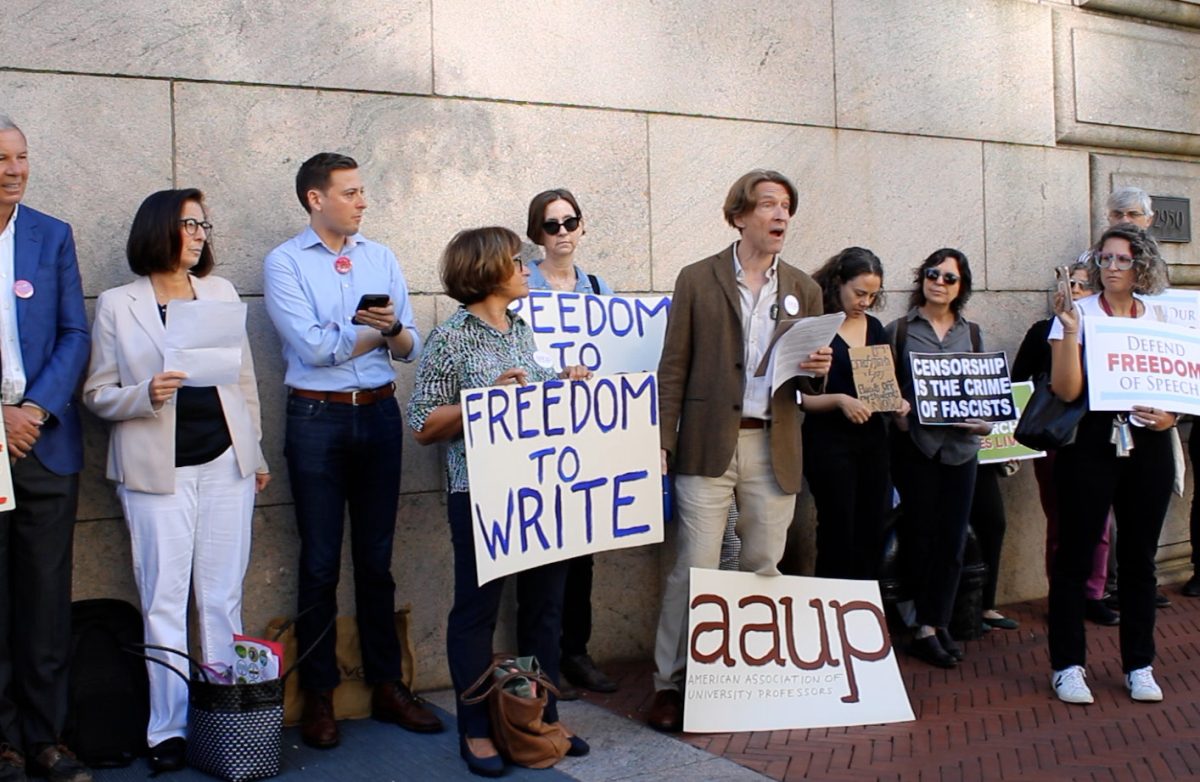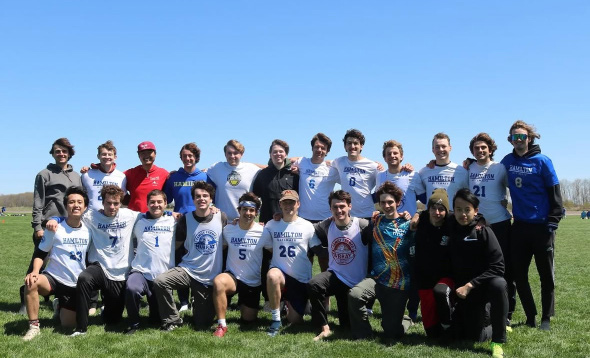
On Feb. 5, The Womxn’s Community Center, in collaboration with Planned Parenthood Generation Action (PPGEN), sent out an email in response to a
New York Times
article from Sep. 28, “Students Look to Vending Machines for Better Access to Morning-After Pill.” This email invited students to a discussion at the Womxn’s Center the following evening to discuss bringing these vending machines to the Hamilton College campus.
On Feb. 19, PPGEN sent out an all campus survey asking a series of questions regarding bringing vending machines to campus. Three days later, on Feb. 22, PPGEN sent another all-campus email addressing concerns and providing clarification regarding Plan B and the overall purpose of the machines on campus. Although the email addressed a fair amount of concerns on campus, I believe it is important to expand on these issues.
It is important to under- stand the function of Plan B, which contrary to some beliefs, is fundamentally different than the abortion pill. Plan B is used to prevent pregnancy in cases when other forms of contraceptives have failed or have not been used. That being said, this is not meant to replace al- ternate forms of contraceptive methods. Plan B should be taken within 72 hours of sexual intercourse. It contains a large dose of levonorgestrel, a synthetic hormone used in birth control pills. Primarily used to delay the release of an egg from the ovary, it can also work to pre- vent fertilization of the egg or the attachment to the uterine wall. This is often confused with mifepristone which works to induce a miscarriage, often referred to as the “abortion pill.” This distinction nullifies the pro-life, pro-choice argument as it is used to prevent pregnancy not terminate an al- ready existing pregnancy.
Plan B, along with generic forms, are supposed to be over-the-counter medications. However, the
New York Times
article states that experts have found that drug stores do not always keep this medication in stock because of the expense and the lack of room. In 2012, Kelly C. Cleland, a researcher at Princeton University and the executive director of the American Society for Emergency Contraception, conducted a survey of pharmacies concerning the morning after pill. She found that of 133 pharmacies in 22 states, 41 percent did not have an emergency contraceptive in stock. Furthermore, one third of individuals surveyed said pharmacies were told identification was required in purchasing the drug and 22 percent were told there was an age restriction. Neither of these limitations are true. In addition, the times in which students are in most need of such forms of contraceptive prevention methods are week- ends, a time when majority of college and university health centers are closed.
Students have reported feelings of stress, discomfort, and embarrassment in visiting drug stores and health centers to obtain the drug. Even with the best efforts of pharmacists and health care professionals, there is a level of judgement that is felt when buying forms of contraceptive or pregnancy tests. The vending machines also create a less expensive way to obtain the drug because universities do not mark up the pricing. Although it can be argued that this method provides a missed opportunity for counseling in a health care environment, individuals are often not looking to speak to anyone and wish for more anonymity.
An additional concern regarding the vending machines was that they would promote sex or specifically, irresponsible sex, on campus. To first address this issue, it is important to emphasize the fact that Plan B is used as an emergency contraceptive, not as an alternate form of birth control. Additionally, taking Plan B can have negative effects such as nausea or vomiting, dizziness, fatigue, headache, as well as lower abdominal pain or cramping. Taking Plan B is not a positive experience. Having easier access to it will thus not promote unsafe sex, but in the unfortunate case of something happening, will simply make it easier for students to take action to prevent pregnancy.
The second aspect to this is the offering of “fun” condoms. To be quite frank, if people want to have sex they will, and if they do not, they will not; a Fire and Ice or mint-flavored condom is not going to change that simple fact. It is simply to offer an alternative to the Life-Style® brand condoms offered at the Health Center. Sex is a personal choice and I believe if people choose to engage in it, they should have access to both the tools and options regarding it.
Hana Lindsey ’20 commented on behalf of the Womxn Center and PPGEN: “At the Women’s Center, and with Planned Parenthood Generation Action, we want people to feel empowered, comfortable, and confident in making decisions about their sex lives. As a college campus that has limited access to drug stores and convenience stores, especially on weekends and late at night (when Plan B is most likely to be needed), it’s important to make sure there are resources available to all students, at all hours, on campus. In addition, in the event that a sexual assault has taken place on campus where other forms of contraceptives may not have been in use, Plan B may be the only option in preventing pregnancy. We want individuals to feel as though they have the tools and options they need to be safe during an emergency as well as an accident.”
Moreover, it is important to destigmatize the idea of sex and promote conversations about it on campus. Conversations revolving around sex, birth control, and contraceptives should be encouraged on campus, rather than being something people are made to feel ashamed or embarrassed about.

















